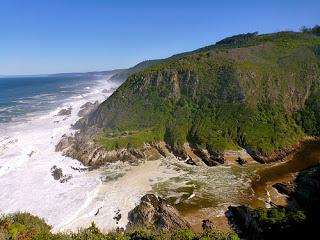 A new report on the health and status of the Earth's wilderness areas has provided some startlingly results, but not just for the fact that our wild places are getting smaller and further endangered. According to a new study conducted by the University of Queensland and the Wildlife Conservation Society, roughly 94% of the planet's wildernesses are controlled by just 20 countries. Even more alarming is that about 70% of those areas are under the direct control of just five nations.
A new report on the health and status of the Earth's wilderness areas has provided some startlingly results, but not just for the fact that our wild places are getting smaller and further endangered. According to a new study conducted by the University of Queensland and the Wildlife Conservation Society, roughly 94% of the planet's wildernesses are controlled by just 20 countries. Even more alarming is that about 70% of those areas are under the direct control of just five nations.For the purposes of the study, both Antarctica and the world's oceans were omitted from the research, which chose to instead focus on the six inhabited continents, along with islands scattered across the surface of the Earth as well. With those geographical restrictions in place, it was determined that the U.S., Canada, Russia, Brazil, and Australia are the five countries that hold the most sway over the remaining wild regions of the planet.
The research was conducted using high-resolution satellite imagery, which was used to map out the Earth's remaining terrestrial and marine wilderness areas. The study lasted from 2016-2018, and surveyed the amount of man-made infrastructure that was infringing on forests, mountains, rivers, and other natural resources and spaces. For the purpose of the study, a wilderness was defined as "sizeable, contiguous areas free from human pressures."
Using those terms to define what is and isn't a wilderness provided yet more sobering news. According to the report, 77% of the land and 87% of the oceans have been directly altered to some degree by humans. Furthermore, the research showed that every year large sections of what were once deemed wilderness are now disappearing, generally taking numerous species with them or forcing wildlife to live in a smaller space that is encroached upon by modern life.
The news isn't completely bad however as the five countries who do have direct control over most of the remaining wilderness have taken steps to protect it. National parks and forests, conservation areas, and protected environments are held in high value in those places. The hope is that not only will these countries continue to protect those places, but that others will take up the mantle and do so too.
You can read more about this story here.

